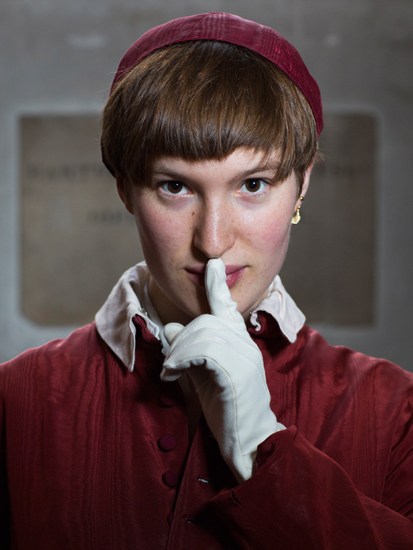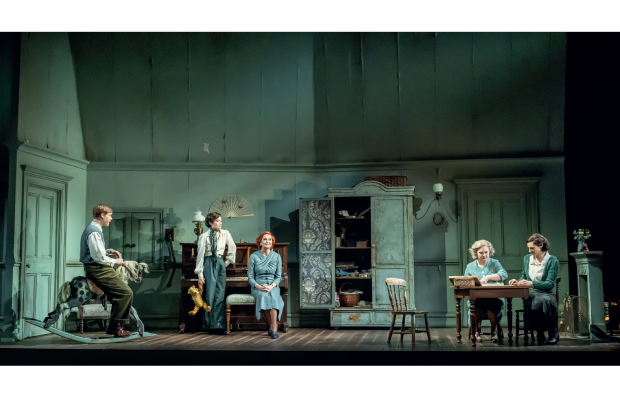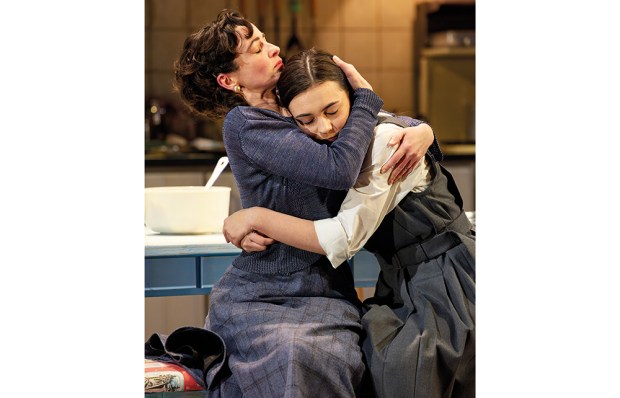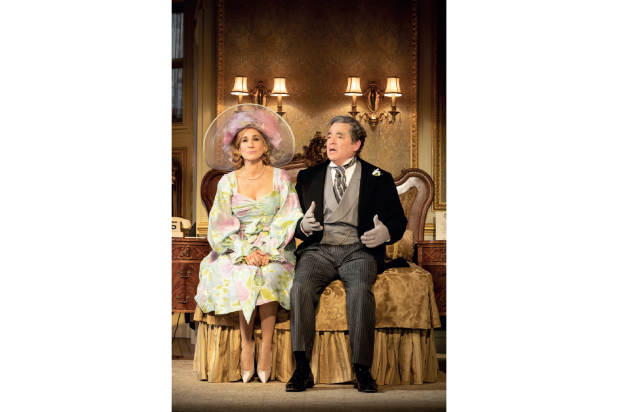Suddenly they’re all at it. Actors, that is, writing plays. David Haig, Rory Kinnear and Simon Paisley Day are all poised to offer new dramas to the public. But someone else has got there first. You may have spotted Phoebe Waller-Bridge playing a secretarial cameo in The Iron Lady. She’s a rangy Home Countries brunette with rosy lips, large inviting eyes and an angular, forthright face that suggests intelligence, amusement and a hint of subversive sexual power. Her immaculate skin is as white as a snowdrop. All in all, she’s perfectly set up for a steady career in frocks and pearls playing Downton gold-diggers and hyperventilating Jane Austen virgins.
But she seems to want more, something wilder, something weirder, from her profession. Her début play, a monologue called Fleabag, is a riveting examination of hedonistic excess in the metropolis. She plays a flighty, rootless posh bird who runs a Bohemian café in London with her best friend Boo. Poor old Boo’s naughty boyfriend has been caught playing around so Boo stages a cry-for-help suicide attempt that goes wrong. Boo dies. This drives Fleabag on a downward spiral of madcap boozing and random carnality. She roams the city’s bars and streets looking for men to bed. Physical allure doesn’t interest her. She’s keen to chat up any rat-faced, ginger-haired, beer-gutted passer-by. Some of her interviewees are carrying bus passes. What she craves is the moment when a man’s eyes change and she registers the sublime affirmation of lust. ‘He wants my body.’
When she fails to pull, she returns to her flat and sates herself with internet porn. Mostly gangbangs. I realise she sounds like a sad little basketcase who could do with a spell as a volunteer in a leper colony to straighten her out. But Fleabag is also witty, open-hearted, imaginative, observant and fearless. Above all, she’s self-aware. She realises, as we do, that a glut of sexual encounters is as dispiriting as a sexual drought. And something is being held back, all the way through the play. We know that her vodka-fuelled descent into reckless Tube pick-ups and squalid quickies in toilets is a means of blocking out some vast and ugly truth. And when the secret emerges, it comes as a glorious and gut-wrenching moment of revelation. Our disapproval of her self-destructiveness turns into understanding, appreciation and even love.
That’s a male perspective, of course. Some female critics have found Fleabag’s exultant sluttishness and anti-feminist jibes all too much. The play is assured of a future beyond its present run at Soho. Any sane film producer seeing this piece would set about raising capital for a big-screen version straight away. I expect that’s what’ll happen.
And here’s another one. A young actress, Louise Brealey, has written her debut play for the National Youth Theatre. Her theme is Pope Joan, the female prelate rumoured to have served as Pontiff towards the end of the Dark Ages. The play lurches here and there like a lobster on crutches. The venue doesn’t help. St James’s Church in Piccadilly has a harsh, echoey acoustic that scrambles the lines into a big sonic mush. After a while you get used to it.
The atmosphere of the Vatican feels like a 1950s blockbuster starring Rex Harrison. An infidel is dragged on and threatened with death unless he converts to Christianity. In the next scene, he’s shown being booted around his prison cell by a cardinal who takes dainty bites from a croissant while kicking his victim’s face. Brealey seems content to portray her male characters as shouty, swaggering, uptight brutes. Pope Joan, with whom we’re expected to sympathise, is not easy to fathom. At first she’s a steely-hearted dogmatist who orders Rome’s whores to be whacked with sticks. Flashback sequences show her as an angelic young bookworm devouring sacred texts. But we never learn how she rose from a provincial schoolroom to the leadership of Europe’s most influential organisation while masquerading as a bloke.
Having become Pope, she enjoys a nervous, not-quite-there romance with a confused young cardinal. Later, following a topless moment on the high altar, she leaps half-naked into the upraised hands of a mob of monks and is carried through the church like a soft-porn Catholic icon. After this she becomes a Greenham feminist and pleads for Mary Magdalene, the first human to see the risen Christ, to be granted full membership of the apostles. She then gets pregnant and succumbs to so many attacks of morning sickness that an entire scene implodes. The last phase of her life, though violently disagreeable, is difficult to engage with because her character is so arbitrary and incomplete. Brealey shows promise but needs better service from stricter editors.
Got something to add? Join the discussion and comment below.
Get 10 issues for just $10
Subscribe to The Spectator Australia today for the next 10 magazine issues, plus full online access, for just $10.
You might disagree with half of it, but you’ll enjoy reading all of it. Try your first month for free, then just $2 a week for the remainder of your first year.














Comments
Don't miss out
Join the conversation with other Spectator Australia readers. Subscribe to leave a comment.
SUBSCRIBEAlready a subscriber? Log in